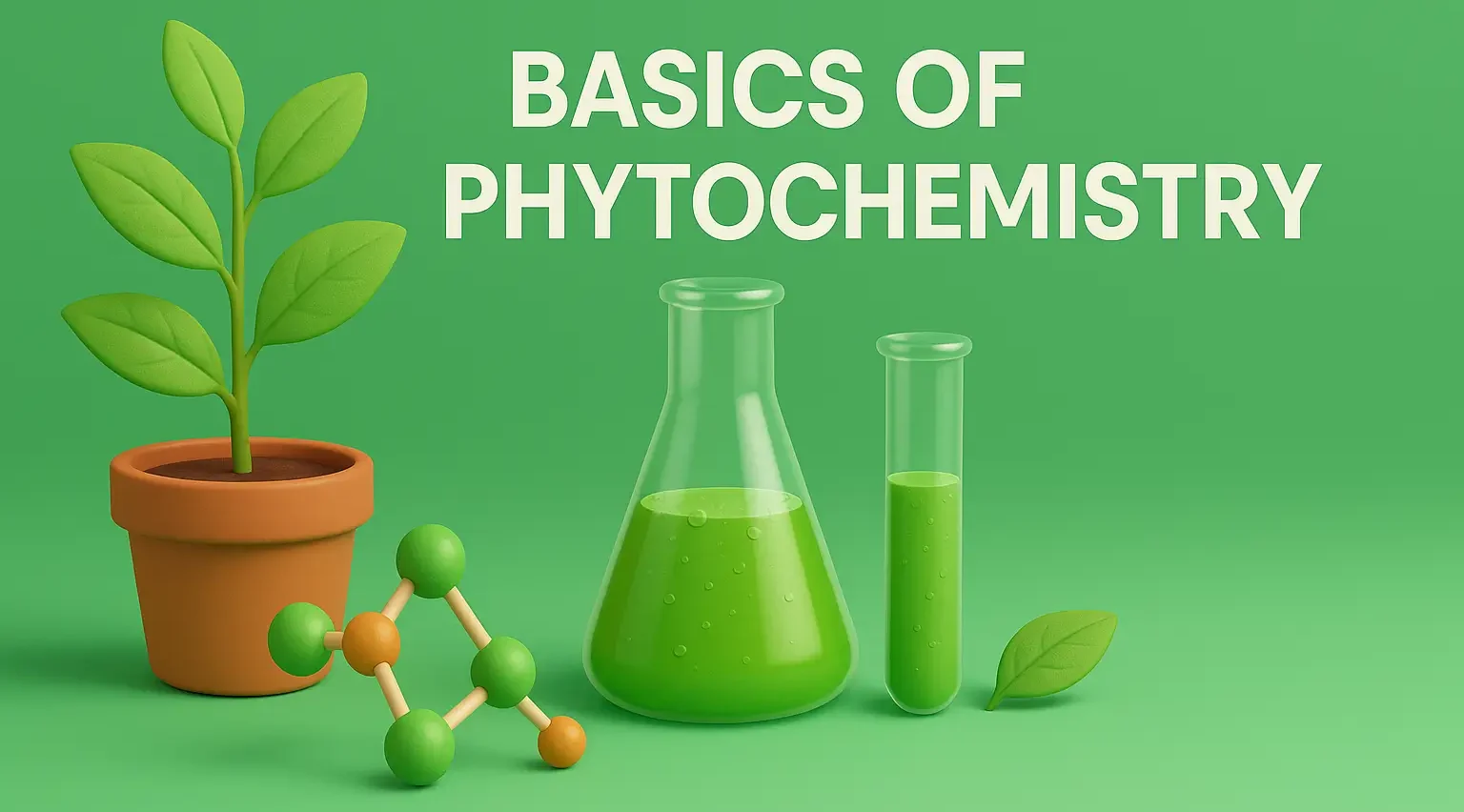Basics of Phytochemistry:
Basics of Phytochemistry explore plant-derived bioactive compounds essential in drug discovery and natural product chemistry.
Definition and Scope of Basics of Phytochemistry:
- Phytochemistry is the study of chemicals derived from plants (phytochemicals) and encompasses their biosynthesis, structure, function, and application.
- These compounds include alkaloids, flavonoids, terpenoids, phenolics, saponins, and glycosides, among others.
Importance of Basics of Phytochemicals:
- Medicinal Uses: Many phytochemicals have therapeutic properties. For example, aspirin was originally derived from salicylic acid found in willow bark.
- Nutritional Value: Compounds like vitamins and antioxidants contribute to human health.
- Agricultural Applications: Phytochemicals can be used as natural pesticides or growth promoters.
- Industrial Uses: They serve as natural dyes, fragrances, and in the synthesis of various materials.
Biosynthesis of Phytochemicals:
- Plants synthesize phytochemicals through primary and secondary metabolic pathways.
- Primary metabolites are essential for growth and development, while secondary metabolites often play roles in defense, signaling, and interaction with the environment.
Advertisements

